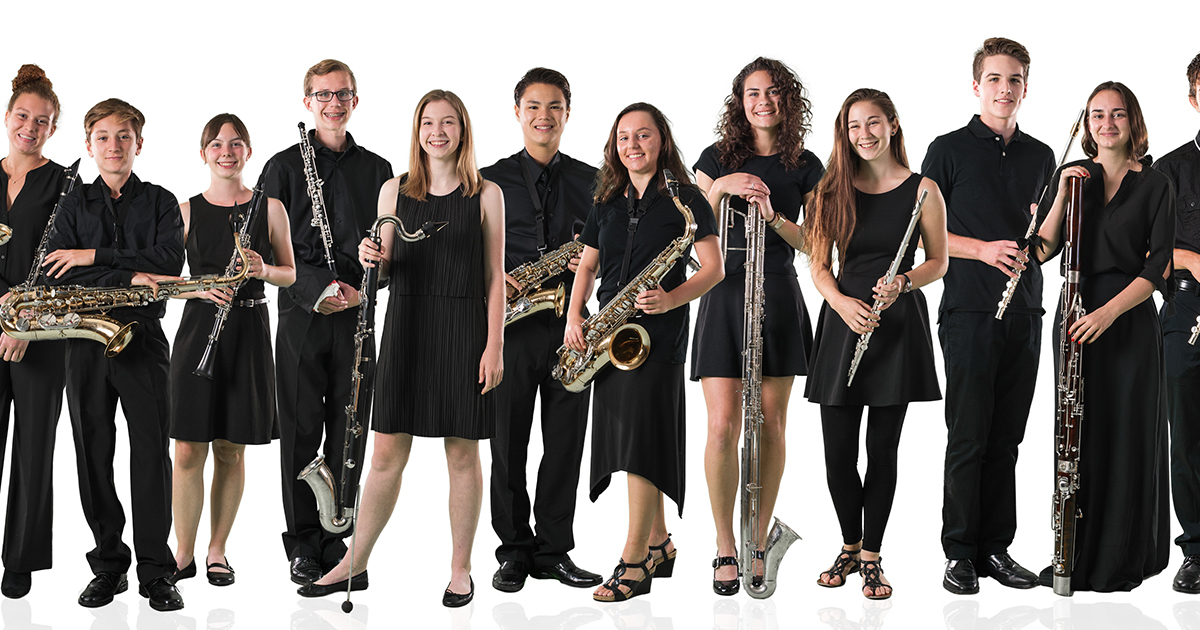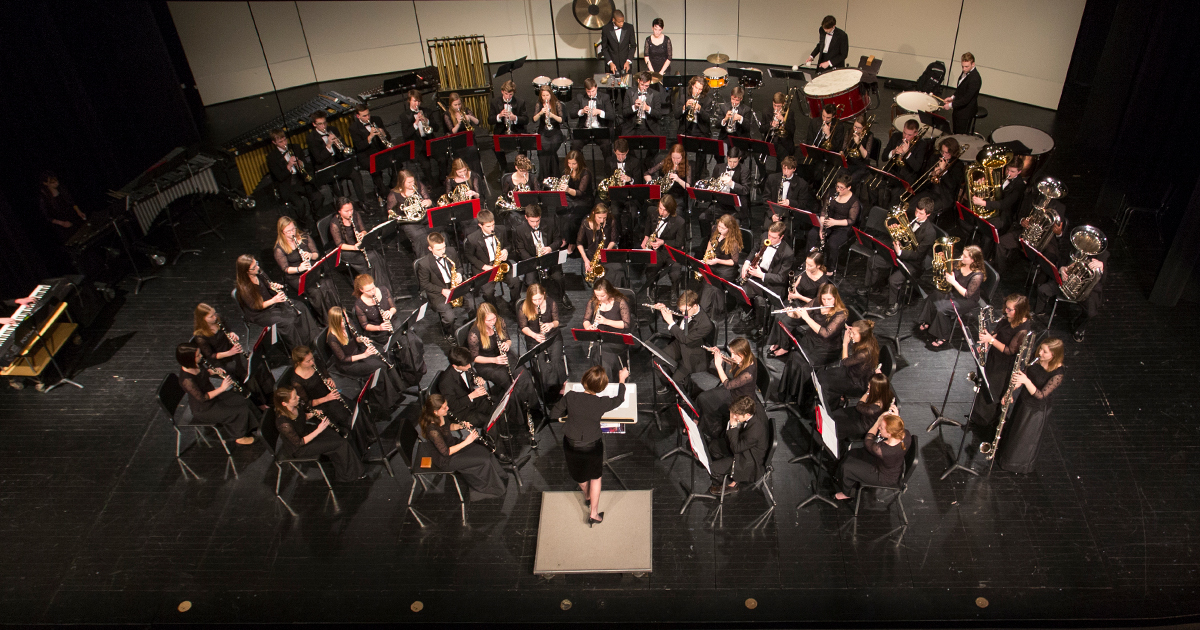Sharing 26 Years of Experience: The Most Effective Way to Reach Your Students
with Band Director Rebecca Friesen
Date Posted: October 11, 2018

Where, and what grade levels/subjects do you teach?
I am Director of Bands for the Kirkwood School District in St. Louis, Missouri which includes overseeing the 5th grade elementary beginning band program as well as the middle school and high school bands. Primarily I teach at the high school and the beginning 5th grade clarinet class. At Kirkwood High School I teach Marching Band, Concert Band, Symphonic Band and Wind Ensemble as well as the KHS Woodwind Choir.
How long have you been a band director?
This is my 26th year of teaching.

Kirkwood High School
How do have your clarinet and saxophone students produce a beautiful sound from day one?
First, I try to make sure they have a good equipment set up with a good beginner mouthpiece. We focus on embouchure, air production and pitch without the instrument, mouthpiece and barrel only, for the first few lessons before we try to play anything with the full instrument.
Have you ever heard of JUNO reeds by Vandoren? If so, what do you think?
Yes, we use them in our program and they are fine for beginners. We recommend the JUNO 2 1/2 for beginning clarinet students.
What is the greatest challenge you face as a band director and how do you address it?
Appropriate and consistent learning space, time, and meeting all the equipment and music needs.
We work from a modified block schedule at all levels. Along with the block schedule and sharing students with other activities, rehearsal time is at a premium. However, this does create a level of focus and urgency in the time we do have.
Budgets are always tight and we are always looking to alternate funding to provide the appropriate method books staffing and equipment. We have several fundraisers per year and we are fortunate to have a school district and community in Kirkwood that supports the arts both philosophically and financially.
"Directors must win the student’s respect and cooperation before you can get to their minds." - Rebecca Friesen
What is one tip you could recommend to band directors about retention?
Directors must win the student’s respect and cooperation before you can get to their minds.
The classroom environment must be one of cooperation, focus and positive reinforcement. Students have to “buy in” to the program and to you if they are going to stick around. There are many other options for them through sports, activities, engineering clubs, foreign language clubs, honors and AP classes that draw on their time.
Creating positive momentum is key. Building relationships with the students and with their families is essential. Parent teacher conferences and positive communication may be your most important job.

Kirkwood Wind Ensemble
What are some of the method books you use for your clarinet and saxophone players?
Beginners - Essential Elements, Scale and Rhythm Chunks, self-written technique books with scales, long tones, register exercises and “fun songs".
Middle School - Tradition of Excellence, Essential Musicianship and Bach and Before Chorale Books for Band. We also use self written music theory worksheets and tetrachord worksheets as well as “Scale Matrix” sheets for Major and minor scales.
High School - Foundations for Superior Performance and Sound Innovations, Symphonic Warm-ups for Band by Claude T. Smith. Sight reading books are also an essential part of every band’s rehearsal.
What is one thing you're particularly proud of in your band program?
We have built our program on the philosophy that students can be athletes, artists, dancers, academics and continue to keep band in their schedule. We are not a competitive Marching Band, therefore students do not have to choose between being an athlete and a musician in the fall season. However, we still put on a full halftime show and strive for the same quality performance as those groups that are competitive. Our concert program is also thriving with 3 concert bands, Woodwind Choir, Brass Choir and active chamber music program.